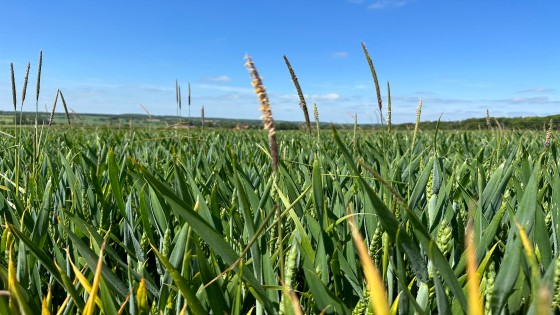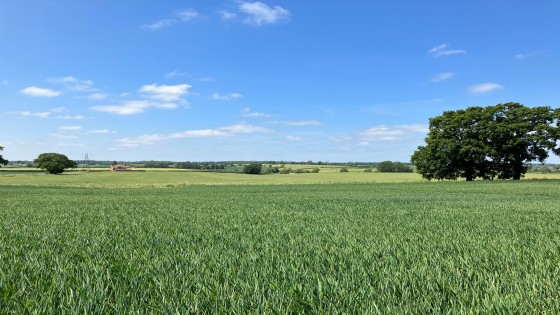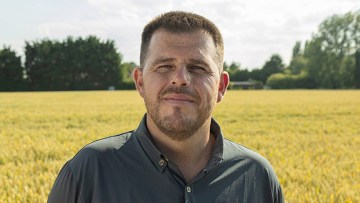LUXIMO® ON FARM: Daniel King
2024/2025
About Daniel
Daniel King farms approximately 740ha of tenanted and contract farmed land in Bourne, South Lincolnshire.
Pasture Hill Farm lies on heavy soils. It is a purely arable farm with a mix of winter and spring crops including winter wheat, spring oats, winter oilseed rape (OSR) and winter beans.
Traditionally cultivations were plough-based, but today Daniel uses minimum tillage.

Black-grass
Daniel has had black-grass at Pasture Hill farm for over 25 years.
Initially it wasn’t causing too many issues but a tight rotation of wheat and oilseed rape meant the grass weed population escalated.
“10-15 years ago we were having big swings in yields and would regularly see tonnage drop from 10t/ha to 3t/ha purely because of the black-grass pressure,” he explains. “It meant we were applying glyphosate to large areas of crop. Thankfully we’re now a long way from where we were.”

Cultural controls
Daniel is using every cultural control available to him. Despite the heavy land, he is using delayed drilling on his winter crops – none are sown before 15th October. He chooses vigorous varieties and this year he has Skyfall, Extase and Palladium in the ground, all destined for bread making.
To maximise crop competition, seed rates are kept high - between 500 and 600 seeds/m2 - and nitrogen applications total 220kg/ha.
Spring cropping has been introduced into the rotation to extend the opportunities to create stale seedbeds, these have also been chosen with black-grass in mind. “Spring oats are in the rotations because they seem more vigorous than alternatives like barley,” he explains. “We can drill them earlier, and there’s a better end market. Fundamentally, spring oats are a good break crop and we have drilled 150 ha this year.”

Chemical controls
Over the years, Daniel has seen black-grass adapt to many herbicides.
“Years ago, we knew it was resistant to fops and dims,” he says. “Initially we were using IPU and trifluralin mixes – Wildcat, Cheetah and Topik, for example - they did a really good job for the first two or three years. From there we moved to the first of the sulfonylureas – (Atlantis) but they ran out of steam pretty quickly as resistance developed. Today we’re focused on residual chemistry and use heavy pre-emergence herbicide stacks.”



